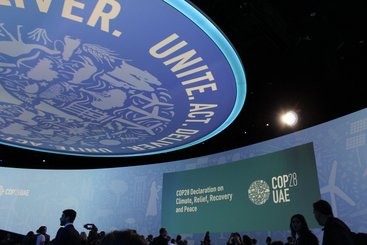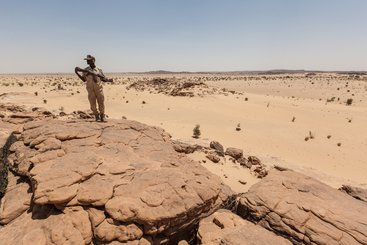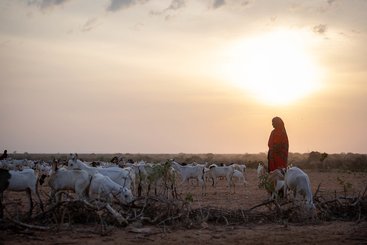A new way of thinking about and delivering the climate agenda is urgently needed in fragile and conflict-affected situations. This Framing Note argues that we must move from coping with crises to Building Forward Better.
People living in places affected by fragility and/or violent conflict are among the most vulnerable in the world to climate change. In these situations, a natural hazard – such as a flood or a drought – can quickly trigger disasters and exacerbate protracted crises. Unless these countries transition to climate-resilient development, the gap between humanitarian needs and funding will continue to grow, locking countries into a vicious cycle of perpetually coping with crises.
Individuals themselves cannot meaningfully be expected to adapt to climate change. What is needed is for actors in conflict-affected countries to work together to address the drivers of fragility, and enable peace, stability and systemic resilience, so that people have more options to manage challenges and embrace opportunities. Rather than simply building back after a new crisis hits, the development community must support countries to Build Forward Better.
Building Forward Better will require a transformation in the way humanitarian, development, peacebuilding, disaster risk management and climate adaptation actors work in fragile and conflict-affected settings. This Framing Note, released at COP28, argues for a new way of thinking, delivering and financing humanitarian, development, peacebuilding, disaster risk management and climate adaptation action in fragile and conflict-affected situations: one in which programmes and investments by all actors are linked, layered and sequenced in such a way that they mutually reinforce and support each other, and are informed by a clear understanding of the drivers of conflict and climate risks.







